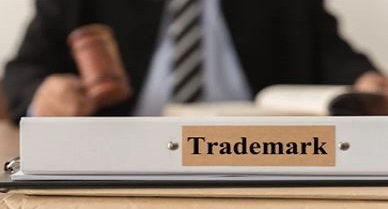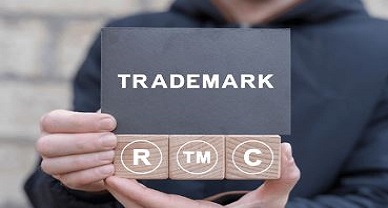“It Might Be Your Character, But It’s My Business” The Saga of Themed Public Places and Trademark Infringement
Introduction
We frequently spend time in a themed café or public space, attempting to immerse ourselves in the world of our favourite characters, whether they be from Harry Potter, F.R.I.E.N.D.S., Marvel, DC, Disney or any other. These themed locations allow us to re-enter the world of our characters, but we seldom consider if it is acceptable for person or organization to utilise these well-known figures. The general population enjoys visiting themed public spaces, particularly in India. Amusement parks, museums, and restaurants are a few examples of locations that create a particular theme or setting to provide a distinctive experience. Nonetheless, trademark infringement has grown to be a serious problem there, with legal repercussions for the owners.
All those concerned in intellectual property were interested in the recent case of Warner Bros Entertainment Inc. v. Mr Ishant Kashiwal trading as the Hogwarts Kafe & Ors.,[i] popularly known as the Hogwarts Kafe case. In the case the plaintiff filed an injunction suit against defendant to restrain them from using the name “The Hogwarts Kafe” and other relevant “Wizarding World Properties” in relation of the Defendant’s café. Thus, raising a very valid question that whether a themed restaurants violate trademark rights of the show it is based upon?
Trademark’s violation
A trademark is a special symbol, word, or phrase that sets one company’s goods or services apart from those of competitors. When a business or person uses a registered brand without authorization, creating consumer confusion or deceit, this is considered a trademark violation. Intellectual property rights have been violated, and the offending party may face legal consequences.
Trademark violations by themed public places
In recent years, themed public spaces have grown in popularity, with many of them reenacting well-known films, TV episodes, and other cultural phenomena. A few examples of themed restaurants or cafes are the F.R.I.E.N.D.S.-themed Central Perk cafes in Kolkata and Delhi, which featured the orange couch (as seen in the sitcom), the dog statue owned by Joey and Chandler, the distinctive purple door, and the words “Central Perk” as they appeared on the café’s window in the show.
Another extremely well-known TV programme that has sparked a tonne of themed restaurants is GAME OF THRONES. These restaurants feature a wide range of well-known show elements, such as the Iron Throne, House banners, character posters, dishes and drinks named after characters and places, etc. Such themed restaurants have sprouted up all over the world (and even in India)!
[Image Sources : Shutterstock]
The restaurant proprietors could have to defend themselves against claims of passing off. The rightful owner of a series name might readily depend on the principles of a well-known trademark and international reputation to support its claim, even when a mark doesn’t appear to have been registered in the country. For instance, NBC continues to sell a lot of items with the “FRIENDS” mark even after the famous sitcom finished airing, increasing its status as a distinguishing brand. A restaurant using the name of the popular comedy can unintentionally imply that the two are inextricably linked and that the restaurant has studio approval.
Theft of trademarks may be a bigger issue for character-themed cafés. Another instance of this is Harry Potter, whose trade mark is owned by the entertainment corporation Warner Bros. and whose copyright is owned by author JK Rowling (in Australia as well). A UK food blogger who operated an underground restaurant in 2009 made the decision to host a ticketed dinner with a Harry Potter theme. Warner Bros.’ legal department filed a letter shortly after it was announced claiming that the dinner would violate Warner’s rights and that, although they had no issue with a generic magical night theme, mentioning Harry Potter did so infringe on Warner’s rights.
What does Trademark laws Say?
The Trade Marks Act of 1999 provides protection for trademarks in India. The legislation defines a trademark as any image, phrase, or combination thereof that may be used to differentiate one person’s products or services from those of another. The law also allows for the registration of trademarks, which grants the owner sole use of the mark and forbids unauthorised use by others.
In India, trademark infringement is a civil offence, and the trademark owner may sue the infringer for compensation or an injunction. According to the degree of the infringement, the owner may select the best remedy from the list of civil and criminal penalties provided by the act.
The owner of the trademark may launch a lawsuit for damages or an injunction against the infringing party in situations of trademark infringement by themed public spaces. Before giving relief to the owner, the court will take into account a number of considerations, including the degree of resemblance between the marks, the nature of the products or services, and the probability of customer misunderstanding.
In the case of Kamal Trading Corporation & Ors. vs. Gillette UK Ltd., England [ii], it was discovered that the defendant had been exploiting the plaintiff’s “7 O’CLOCK” mark in connection with toothbrushes. The Hon’ble Bombay High Court prohibited the Defendant from using the mark “7 O’CLOCK” by recognising the Plaintiff’s international repute and the distinctive nature of the above mark. When issuing the ruling, the Honorable Court said that it is not necessary for a brand to have a positive reputation in India in order to demonstrate its goodwill.
In Daimler Benz Aktiegesellschaft vs. Hybo Hindustan[iii], the Defendant was found to be selling undergarments under the Plaintiff’s mark ‘Benz’ accompanied with a ‘three-pointed human being in a ring’. At the time, the Plaintiff firm enjoyed a solid reputation for selling high-end automobiles. The Hon’ble Delhi High Court acknowledged the well-known character of Mercedes Benz and concluded that it would be “perverse” to use such a renowned and well-known trade mark for such different goods of this nature,
In N.R Dongre vs. Whirlpool Corporation[iv], even though Whirlpool did not actively conduct business inside the borders of India, the court recognised and took into account the goodwill and repute of the mark. While providing remedy, the court noted that there had been an incidental impact on the nation due to the brand’s substantial foreign promotion.
Conclusion
Themed public spaces now frequently violate trademarks, which might carry legal repercussions for the owners. Indian trademark laws offer protection and redress for trademark infringement, and trademark owners have the right to sue infringers. Before awarding the owner relief, the court will take into account a number of considerations, and the suitable remedy will depend on how serious the infringement was. To prevent legal problems, it is crucial for themed public spaces to respect other people’s intellectual property rights and refrain from violating trademarks.
Author: Anish Jandial, in case of any queries please contact/write back to us at support@ipandlegalfilings.com or IP & Legal Filing.
[i] CS (COMM) 457/2021
[ii] [1998 PTC 288 DB]
[iii] [1994 PTC 287]
[iv] [1996 5 SCC 714]



